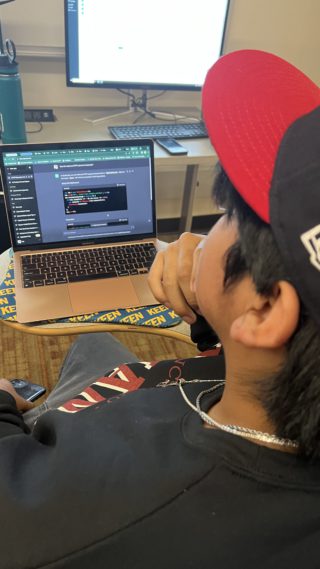AI lacks compassion necessary to replace creative jobs
AI is changing the world. One thing it has not changed yet, however, is human ingenuity.
Artificial Intelligence has been in the public consciousness ever since it appeared in 1984 in movies such as “The Terminator.” Humans have been trying to make life easier, and it has been no different in the 21st century.
AI can simplify many of the daily tasks that people find annoying, such as organizing files and finding specific pieces of information within them. AI language models have been programmed to learn from their surroundings and perform a task based on certain assumptions. ChatGPT is one of many famous AI models that engage the world with its snappy responses and seemingly accurate information, with over 100 million people.
Erick Johnson is a man who takes pride in his community and culture, along with being an award-winning journalist, covering stories that range from celebrities to the common man. His philosophy revolves around looking out for the little guy. In an age where AI is a potential threat to steal any type of job due to the sheer amount of applications it has, from self-driving cars to writing code, staying down to earth can be difficult.
Most jobs possess an autonomous factor that AI easily emulates. The improvisation skill that is needed to conduct a fluid interview is something AI cannot do yet, since many AI bots like ChatGPT store information based on what a human responds with, replacing their train of thought with the new information. Some jobs, like the one Johnson takes pride in, require human compassion to work in, not the mechanical identity of AI.
Noble Street College Prep (Chicago) junior Sherlyn Hernandez is considering being an architect, and her upbringing played a huge part in her career choice.
“I’ve always liked [being] very artsy,” said Hernandez. “So I think somewhere in the like, architect or interior designing. I think maybe even party planning. I’m also very family oriented. So anything that you’re able to talk and connect with others.”
Her interests also lie in helping others, specifically through law, as she hopes to fight for the ability of immigrants such as her parents to return to Mexico.
“I like helping others too, so going into law will be a benefit for that, especially with the immigrant cases,” Hernandez said. “My dad, he can’t really go back to Mexico. So helping him gain that access to go to Mexico and help his parents gain that access to go to Mexico will be really helpful, they haven’t gone for like, I want to say 25 years. And I think it will bring people together.”
Hernandez credits her upbringing for shaping the way she approaches her role in the workforce. She believes that AI cannot replicate the comprehension and argumentative abilities of lawyers.
“Something that I’ve always been told when I was growing up was to see things from the other person’s point of view. And I think as an AI you’re not going to be able to get that out of them just because again, they’re robots. So switching from different points of view isn’t going to be reliable.”
IU Media School technology specialist Allen Majors has taught students about the intricacies of photography and videography for twelve years. Major acknowledges the potential of AI in shaping how his job may be done one day, but he also sees the downsides.
“It’s going to take away the menial stuff that people don’t want to do, like going through files and going through all these words and finding this word,” Major said. “I worry about the graphic artists because you can go and say [draw] a picture of me standing in the forest [with] a dragon, that’s so simple for AI [but it is] hours of work for somebody [else].”
Major’s experience in teaching has shaped how he responds to different situations, especially those related to his students, and he considers that very valuable compared to what AI can offer, despite his job being related to technology.
“If I’m teaching people how to use cameras, it’s finding new ways to get them to understand complicated processes in a simple form,” Major said. “You can overwhelm people with information, so I think the crazy part of my job is figuring out what’s gonna stick in their brain.”
Major also recognizes a flaw within AI: it can be overloaded with information. AI cannot condense something as effectively as a professional who not only has experience but also reads facial expressions and takes cues that people do not understand the technique.
“Reading [facial expressions],” said Major. “Like when someone’s bored, or when someone’s not listening. When I’m teaching, and it’s not exciting and some of the people there don’t want to learn it, you have to figure out a way to get them involved or get them off the chair and [engage them].”
Social cues and human compassion are things AI has not picked up yet. Maybe it will, but even if it can understand human facial expressions, it will be a century before AI can, as Erick Johnson said, “expect the unexpected.”

Frank Messina was using ChatGPT to help him out with some JavaScript, an example of how AI assists with complicated tasks.

